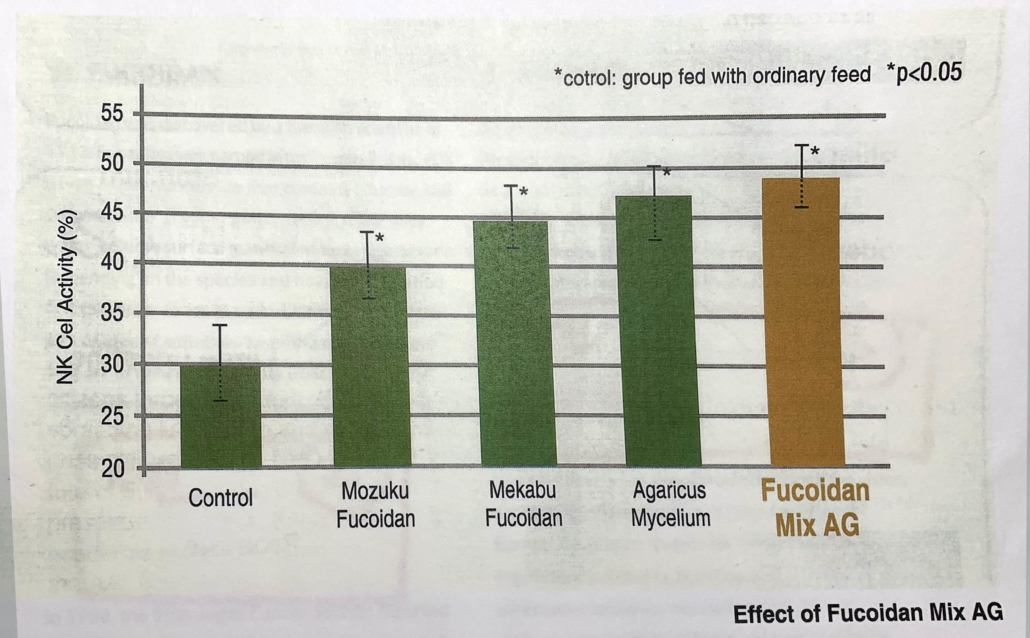Fucoidan
Fucoidan was discovered by a Swedish scientist in 1913. Fucoidan was named after “genus Fucus.” It is a type of polysaccharide that contains L-fucose and sulfated ester groups. Simply stated, it is a slimy, water-soluble surface material of brown seaweeds. Depending on the species and its harvest location and season, it varies in molecular weights and the percentage of sulfation. The differences in these properties determine the clinical efficacy of the supplements available on the market.
In 1996, the 55th Japan Cancer Society reported Fucoidan has apoptosis (programmed cell death) against tumor cells. Later, researchers reported Fucoidan has other significant anti-cancer properties such as (1) growth suppression on tumor cells (in Vitro and in Vivo) (2) NK (natural killer) cell activation (3) angiogenesis inhibition – blocking nutrition supply to tumor cells by blood vessel growth inhibition around tumor cells, and (4) mitigation of chemotherapy related side effects such as – hair loss/nausea & vomiting.
On June 2, 2021, Dr. Noella Lopes & Eric Vivier published in Nature, a world’s leading scientific journal, that NK cells lull cancer cells into dormancy.
There are several research groups who studied fucoidan as a synergistic anti-cancer agent and they found the most bio effective fucoidan depends on:
- Source of fucoidan
- Time and location of harvesting for high content of sulfation
- Extraction method for high molecular weight
Be aware that some fucoidan products sold commercially may not contain fucoidan as stated. Some products appear to be alternative polysaccharides, which contain no anti-cancer activities.
Along with highly sulfated fucoidans, high molecular weight is critical for fucoidan efficacy. Researchers believe high molecular fucoidans are transported via M (microfolds) cells of lymphoid tissue located in the small intestine into the lymph system, which is the key mechanism of fucoidan for enhanced immune cell activation.


